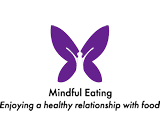Emma Randall: Mindful Eating & Nutrition Therapist MSc, PG Dip, BA (Hons), Dip Raw NT
How I Became A Mindful Eating Therapist: My Own Journey
I’m slimmer now than I was in my twenties. In my twenties I wasn’t really into cooking and was pretty inactive. My heaviest weight (around 13 stone) was whilst I was at University, which included a year living abroad in Heidelberg, Germany. I’ve always been a fan of beer,  and an average diet, combined with almost no exercise and regular drinking caused my weight to increase considerably. Today, nearly three decades later, I’m three stone lighter than I was in my twenties. I’ve never joined any weight loss club and never formally followed any specific diet plan, though as I was interested in diet and nutrition I would occasionally read some diet books that were lying around the house, such as Rosemary Conley’s diet and the ‘F’ Plan. Once I realised that I had become quite overweight (a couple of tactful comments from family members did help to spur me on!), I started to find ways to eat better and cut down on food and drink. It was general common sense stuff. I guess by then, I had a fairly good idea of the calorie content of foods, and was getting much more in tune with which foods kept me feeling fuller for longer and which foods didn’t. I embarked on ‘sensible eating’, which was really just putting more thought and effort into what and how much I ate- mindful eating. As my eating habits gradually changed, so did my weight.
and an average diet, combined with almost no exercise and regular drinking caused my weight to increase considerably. Today, nearly three decades later, I’m three stone lighter than I was in my twenties. I’ve never joined any weight loss club and never formally followed any specific diet plan, though as I was interested in diet and nutrition I would occasionally read some diet books that were lying around the house, such as Rosemary Conley’s diet and the ‘F’ Plan. Once I realised that I had become quite overweight (a couple of tactful comments from family members did help to spur me on!), I started to find ways to eat better and cut down on food and drink. It was general common sense stuff. I guess by then, I had a fairly good idea of the calorie content of foods, and was getting much more in tune with which foods kept me feeling fuller for longer and which foods didn’t. I embarked on ‘sensible eating’, which was really just putting more thought and effort into what and how much I ate- mindful eating. As my eating habits gradually changed, so did my weight.
Leaving Behind The Strict Dieting Of My Teens
In my teens I’d put myself on my own strict diets, which never lasted more than a few days because I’d get too hungry, and knowing how miserable food restriction can be I never embarked on a strict diet again. As a teenager I recall thinking that sensible, healthy eating weight loss diets were boring, and that is was low-calorie plans that got you results, but in my twenties I realised that very low calorie diets weren’t the best way, especially when years later I could see that I was managing to keep off the weight I’d lost. I’d lost weight gradually over time by steadily improving how I ate and getting more active. I had become a more conscious, mindful eater. A big incentive for me was that being overweight had felt physically uncomfortable. I’d been very self-conscious about my body and had worn unflattering masculine-style clothes to cover up, and I never wanted to be like that again.
How My Own Experience Has Shaped My Work
For me, moderation is key, and I think most of us feel better when we’re doing things in balance. Many people who approach me for help have a history of trying different restrictive diets, often due to an impatience to lose weight and to get quick results. Being hungry or not allowing yourself foods you love can be miserable though, and if you don’t provide your body with the calories it needs it will go into ‘starvation mode’, shifting you more into fat-storage mode rather than fat-burning mode, not just short-term, but potentially long-term. I help clients to escape the dieting rut and put them on a path to long-term behaviour change instead. Because I didn’t keep following specific diet plans I learned to think for myself, to choose the foods that were right for me and to establish how much food my body needed, rather than being told by someone else how many grams of something to eat. Finding my own solution to my weight issue helped me to become self-reliant and to avoid getting caught up in a never-ending yo-yo dieting trap. Clients tell me that they feel inspired when I say I’ve kept off my weight for over twenty years.
Ditching the Dieting Mindset- And Keeping Off The Weight For Good
 What I’ve had to work on (and which I’m pleased to say I’ve now pretty much cracked), is the black and white, all-or-nothing mindset that so many people get caught up in – the mode of being either ‘on’ or ‘off’ a diet, or of being ‘good’ or ‘bad’. I used to get into ‘perfect mode’ with dieting, and if I ‘blew it’ just once I would give up and tell myself I’d ruined it, so I would start again the next day or on Monday. Now, in terms of my long-term weight management, if I overindulge I can get back on track because I don’t regard a period of indulgence as a complete catastrophe. Social events and holidays regularly get in the way for most of us, so the best thing we can do is learn to manage choice when we’re thrown out of the routine, through being generally mindful around food wherever we are, whilst enabling ourselves to eat in a flexible way and really enjoy our food.
What I’ve had to work on (and which I’m pleased to say I’ve now pretty much cracked), is the black and white, all-or-nothing mindset that so many people get caught up in – the mode of being either ‘on’ or ‘off’ a diet, or of being ‘good’ or ‘bad’. I used to get into ‘perfect mode’ with dieting, and if I ‘blew it’ just once I would give up and tell myself I’d ruined it, so I would start again the next day or on Monday. Now, in terms of my long-term weight management, if I overindulge I can get back on track because I don’t regard a period of indulgence as a complete catastrophe. Social events and holidays regularly get in the way for most of us, so the best thing we can do is learn to manage choice when we’re thrown out of the routine, through being generally mindful around food wherever we are, whilst enabling ourselves to eat in a flexible way and really enjoy our food.
I used to let it all go at weekends, but now, for long term weight maintenance I still keep an eye on my eating on Saturdays and Sundays- after all, they’re 2 out of 7 days of a week, which is a significant portion of the week, and certainly something to consider when a person is trying to reduce overall food intake in order to lose weight. Unlike my dieting years, there’s no sense of deprivation as I give myself permission to eat whatever food I like. I’ll eat the foods that appeal to me most and pass on the rest. I’m in tune with which foods my body responds well to, and those it responds less well to, so I tend to go for options that will not only keep me satisfied for longer, but those which my body will tolerate best. From experience, I know that eating lots of low fibre foods containing white flour and sugar don’t do me any favours, so I limit them. Wherever possible, I will choose healthier versions of foods, but at the same time, no single food is completely off-limits. In my view there’s no such thing as ‘right’ or ‘wrong’ eating.
I’ve also learned over the years that lots of small, positive eating behaviours add up over the week or month in terms of food not eaten. Something I do and which I teach clients is ‘calorie-shaving’, which is effectively portion control. I find calorie-shaving a great tool for managing my weight long-term, and it’s also very useful when you’re trying to lose weight. I encourage clients to not underestimate any small steps they take, and that it’s good to take note of ‘mini-victories’- it doesn’t matter how small they are. Baby steps are really important when a person is trying to replace old, entrenched habits with new habits.
Embracing The ‘Middle Way’ Of Eating
The concept of mindful eating just makes so much sense to me, and I’m keen to teach as many people about it as possible, to help them to improve their relationship with food, feel more in charge of their eating and to escape the yo-yo dieting trap. It’s so important that people make their first priority to address any underlying problematic eating habits and then, weight loss can be a positive by-product, rather than simply focusing on a weight loss goal. I’ve seen so many people embark on restrictive diets which they then give up after a few weeks, which is why I’m so passionate about helping others to embrace the ‘middle way’ concept of eating, which offers flexibility and balance- this is in stark contrast to simply going on a diet and relying on willpower alone. It’s about finding a balance between being mindful, whilst enjoying your food and feeling relaxed around food. A lot of people experience guilt and shame around eating ‘bad’ foods, which reflects a poor relationship with food. I help clients to realise that if you deprive yourself of the foods you love it’s more likely to lead to overeating, whilst at the same time, overeating isn’t necessarily enjoyable. I also encourage people to avoid labelling foods as ‘good’ or ‘bad’.
Helping Clients To Be Patient With Themselves
 One of the key things I address with clients is patience. I meet many clients with a history of yo-yo dieting, including those who have followed very low calorie meal replacement plans- in many cases these individuals have lost a substantial amount of weight in a relatively short amount of time, but over time they’ve re-gained most of the weight they lost. Some people are impatient to lose weight as quickly as possible, however, I don’t offer a quick fix. Exploring a person’s relationship with food can take time, as can helping individuals to tackle long-term overeating. I can relate to the issues of being overweight and understand the power and draw of food (and drink!), and understand the importance of identifying personalised strategies to help us tackle the obesogenic environment in which we live. We need to find what works for us individually, as one approach doesn’t suit all. We all have our own unique relationship with food and our own challenges, needs and preferences, and physiologically we’re all different too. For this reason my one-to-one sessions provide a highly personalised and in-depth approach, exploring the whole picture.
One of the key things I address with clients is patience. I meet many clients with a history of yo-yo dieting, including those who have followed very low calorie meal replacement plans- in many cases these individuals have lost a substantial amount of weight in a relatively short amount of time, but over time they’ve re-gained most of the weight they lost. Some people are impatient to lose weight as quickly as possible, however, I don’t offer a quick fix. Exploring a person’s relationship with food can take time, as can helping individuals to tackle long-term overeating. I can relate to the issues of being overweight and understand the power and draw of food (and drink!), and understand the importance of identifying personalised strategies to help us tackle the obesogenic environment in which we live. We need to find what works for us individually, as one approach doesn’t suit all. We all have our own unique relationship with food and our own challenges, needs and preferences, and physiologically we’re all different too. For this reason my one-to-one sessions provide a highly personalised and in-depth approach, exploring the whole picture.
Getting Out Of Autopilot And Becoming More Mindful
I teach a range of mindful eating techniques and strategies that I use myself. Over the years, some of the things I’ve got myself into the habit of thinking about when I’m about to make a food choice include:-
- Anticipating how I’ll feel after I’ve eaten something indulgent

- Opting for foods that I know will keep me satisfied, and avoiding those that make me feel hungry soon afterwards
- When deciding whether to eat something, checking whether I’m actually hungry
- Checking how long it is until my next meal, to determine the size of a snack
- Asking myself if something is worth eating- will it really taste as good as it looks?
Many people admit to eating on autopilot, thinking very little about and making little effort when it comes to the eating process; choosing foods mindlessly, rushing down food and barely chewing or tasting it, which means they’re often not actually enjoying their food. I help clients to start ‘engaging the brain’ to help them make better eating decisions, and help them to recognise that overeating isn’t necessarily enjoyable and that you can actually get more enjoyment from less food, if you eat a bit more mindfully. By engaging the brain you can start breaking out of unhelpful, habitual eating patterns.
Qualifications And Experience
For many years I’ve had a keen interest in the psychology of eating and obesity, and with my background in both Health Psychology and Nutritional Therapy my services include both food psychology and nutrition, depending on client needs. I’ve successfully inspired and helped many clients since 2007. Read my Testimonials.
I’ve attended several courses and seminars relating to obesity, weight management, eating disorders, nutrition, mental health and mindfulness, and regularly attend CPD seminars/events/webinars including the following:-
- Certificate: Practitioner Skills in Obesity Management (National Centre for Eating Disorders, course approved by The British Psychological Society) (2014)
- Working with Obesity, Looking at Food Addiction/Binge Eating Disorder (Piece by Piece Recovery) (2014)
- The Overweight Mind And Body: A Psychological Understanding (2021)
- Weight Management and Nutrition Course (Weight Management Centre)
- Biocare Seminar: Obesity
- CMA CPD workshop: Children’s Nutrition and Weight
- Biocare MasterClass Seminar: Eating Disorders
- Higher Nature CPD workshop: Secrets for Optimum Weight Management
- Lamberts CPD seminar: Weight Loss- A Functional Nutritional Approach (2017)
- Lamberts CPD Seminar: Improving Gut Health Naturally (2019) ; Using Fats Functionally (2019)
- Regular CPD webinars including: ‘Balancing Blood Lipids With Nutrition’ (2025); Nutritional Insights For Gut Barrier Optimisation’; ‘Supporting Neurodiversity With Nutrition’; ‘Substance Addictions’; ‘Healthy Cholesterol & Triglyceride Levels Through Nutrition’; ‘Optimising The Liver & Gallbladder Through Nutrition’; ‘Nutrition For Adrenal Hormone Balance’; ‘A Spotlight On Knee Health’; ‘Nutrition For The Elderly/Over 60s’ (2024); ‘Eye Health’ (2023); ‘Working With Clients Who Feel Stuck’; ‘Working With Addictions In Clinical Practice’ (2022); ‘Treating Shame: Tools And Techniques’; ‘Managing Menopause’; ‘Vitamin D’; ‘Gallstones & Kidney Stones’; ‘Nutrition & Cardiovascular Health’; ‘Migraine’; ‘The Brain Diet’; ‘Blood Sugar Control’; ‘Magnesium’; ‘Substance Addictions’; ‘Female Ageing- The Brain’; ‘Bone Health’; ‘The Role Of SDG Lignans In Hormonal Health’; ‘The Immune System’ (2021); ‘Nutrition, Mental Health & Sleep- New Evidence For The Direct Link Between Food, Mood & Sleep’; Mindfulness For Practioners: ‘Mindfulness For Nutritional Change’ and ‘Mindful Self-Care’; ‘Neurodegenerative Disease, Cognition & The Microbiome’; ‘Menopause- Transition Or Turmoil: How To Support Healthy Hormonal Progression’; ‘Mental Well Being: A Nutritional Approach’; ‘Anxiety & Stress- Causes, Consequences & Countering Naturally With Therapies From Rio Health’; ‘Anxiety & Depression Through The Eyes Of A Functional Medicine Practitioner’; ‘The Mucosal Barrier & Immunity’ (2019-2020).
During my training and practice as a Nutritional Therapist I gained much knowledge about human physiology, cause and treatment of diseases, health prevention and promotion, supporting health through nutritional supplements, herbs and lifestyle behaviours, and an in-depth understanding of health problems associated with being overweight or obese.
Giving Talks And Training Sessions
 For over fifteen years I’ve given many popular talks to groups at various weight loss companies and organisations, covering a range of topics including ‘Food and Mood’ and ‘Good Fats, Bad Fats’ (see Testimonials), and in later years additional topics such as mindful eating, emotional eating and personality & eating habits. More details about my talks can be found HERE. In addition to my one-to-one work, giving talks and running groups has given me invaluable experience of working with overweight individuals and hearing about and advising them on their relationship with food and their challenges with weight management. Running groups and giving talks has given me considerable insight into the psychological issues and challenges many people face in terms of their relationship with food and managing their weight. As well as giving talks, I created and delivered a half-day training programme to weight loss consultants at a weight loss company for approximately one year. I regularly run a webinar ‘How To Stop Binge Eating’.
For over fifteen years I’ve given many popular talks to groups at various weight loss companies and organisations, covering a range of topics including ‘Food and Mood’ and ‘Good Fats, Bad Fats’ (see Testimonials), and in later years additional topics such as mindful eating, emotional eating and personality & eating habits. More details about my talks can be found HERE. In addition to my one-to-one work, giving talks and running groups has given me invaluable experience of working with overweight individuals and hearing about and advising them on their relationship with food and their challenges with weight management. Running groups and giving talks has given me considerable insight into the psychological issues and challenges many people face in terms of their relationship with food and managing their weight. As well as giving talks, I created and delivered a half-day training programme to weight loss consultants at a weight loss company for approximately one year. I regularly run a webinar ‘How To Stop Binge Eating’.
Radio
I was interviewed on BBC Radio Birmingham to talk about mindful eating (November 2023): https://www.bbc.co.uk/programmes/p0gmr6t1
I was interviewed by Vanessa Feltz on her BBC London Radio Breakfast show (2019).
Interview with BBC Scotland (2020).
In 2017 I was a guest on local radio (Brooklands Radio’s ‘Just Women’) talking about my Mindful Eating business. To hear the podcast, go to the following link and click on ’02 May 2017 Emma Randall’: http://www.brooklandsradio.co.uk/justwomen.html
Writing
I was commissioned to write a double-page spread for LighterLife magazine entitled: ‘How Our Environment Makes Us Eat’. I’ve also written articles relating to health, nutrition and weight management for a women’s e-magazine. More recently, I’ve been providing comment for magazine features in Woman & Home ‘Feel Good You’, I was quoted in BBC Food in an online article on ‘cheat days’ in 2020, and in 2022 and 2023 I contributed to ‘Psychologies’ magazine- articles on mindful eating and emotional eating.
My Services
One-to-Ones: SPECIAL OFFER: buy three sessions up front and get a 4th session FREE! For more information on one-to-one sessions please click HERE.
Webinar: ‘How To Stop Binge Eating’. Click HERE for more information.
Click HERE to see the events schedule and to purchase tickets for any of my events via Eventbrite.
For tips, information and advice see my blogs.
Follow me on Instagram or my Mindful Eating Facebook page for free tips, advice and information.
If you would like to ask me (Emma Randall) any questions about my services or book sessions, please email me: info@mindfuleating.org.uk or give me a call: 07961 423120.

